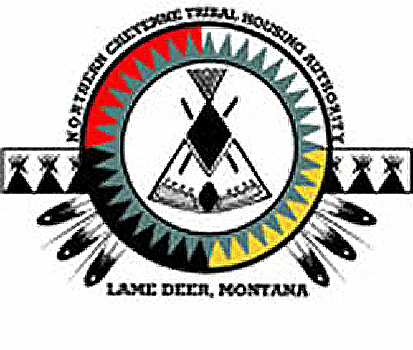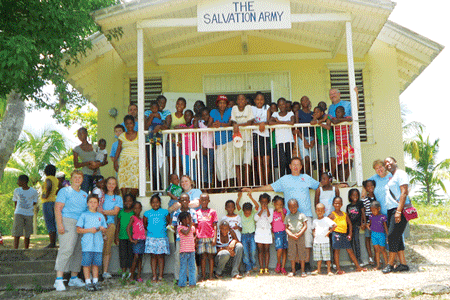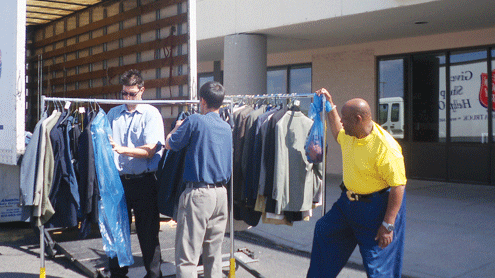Listen to this article
Listen to this article
Loading
Play
Pause
Options
0:00
-:--
1x
Playback Speed- 0.5
- 0.6
- 0.7
- 0.8
- 0.9
- 1
- 1.1
- 1.2
- 1.3
- 1.5
- 2
Audio Language
- English
- French
- German
- Italian
- Spanish
Open text
corps and native american tribe find comfort working together. together the billings corps and northern cheyenne tribe heal wounds of the past and present. by buffy lincoln. wildfires in montana proved taxing on the billings corps this summer, stretching thin the corps’ manpower and resources. alongside corps volunteers, many native americans—members of the northern cheyenne reservation (“rez”) just southeast of billings—assisted. as original dwellers, native americans believe they have a god-given duty to protect and preserve the land. the tribe assumed responsibility for the blazes, believing that nature had responded to recent inter-tribal conflict with an outburst of flames, and offered to atone for their self-inflicted blame with a “call-back ceremony.” in it they would call back to their ancestors to return them to their roots—who they are as a people—and help them come to peace as a people. “i’m always impressed by our tribal brothers and sisters here in these types of situations, how everything to them is spiritual, especially when it comes to things of nature—how the elements of nature play out in their everyday lives both individually and corporately as a people,” said major linda jackson, corps officer. “i think we as christians could learn a lot from them and their practices as we try to recognize how our faith can be played out in how we treat the earth that has been entrusted to us.”. the relationship between the corps and the reservation is a good one. the billings corps served the rez with its emergency disaster services food teams after the fires were extinguished. and although not from the cheyenne tribe, two corps staff members have native roots: flathead (kalispell, mont.) and hispanic/navajo (shiprock, n.m.). the rez residents say they are comfortable with the salvation army and believe the corps understands exactly what they are going through, as opposed to other agencies who they say are just “coming in to save us.”. the corps has not been advised when the call-back ceremony will take place.
Open context player
Close context player
Plays:-Audio plays count
corps and native american tribe find comfort working together. together the billings corps and northern cheyenne tribe heal wounds of the past and present. by buffy lincoln. wildfires in montana proved taxing on the billings corps this summer, stretching thin the corps’ manpower and resources. alongside corps volunteers, many native americans—members of the northern cheyenne reservation (“rez”) just southeast of billings—assisted. as original dwellers, native americans believe they have a god-given duty to protect and preserve the land. the tribe assumed responsibility for the blazes, believing that nature had responded to recent inter-tribal conflict with an outburst of flames, and offered to atone for their self-inflicted blame with a “call-back ceremony.” in it they would call back to their ancestors to return them to their roots—who they are as a people—and help them come to peace as a people. “i’m always impressed by our tribal brothers and sisters here in these types of situations, how everything to them is spiritual, especially when it comes to things of nature—how the elements of nature play out in their everyday lives both individually and corporately as a people,” said major linda jackson, corps officer. “i think we as christians could learn a lot from them and their practices as we try to recognize how our faith can be played out in how we treat the earth that has been entrusted to us.”. the relationship between the corps and the reservation is a good one. the billings corps served the rez with its emergency disaster services food teams after the fires were extinguished. and although not from the cheyenne tribe, two corps staff members have native roots: flathead (kalispell, mont.) and hispanic/navajo (shiprock, n.m.). the rez residents say they are comfortable with the salvation army and believe the corps understands exactly what they are going through, as opposed to other agencies who they say are just “coming in to save us.”. the corps has not been advised when the call-back ceremony will take place.
Listen to this article
















